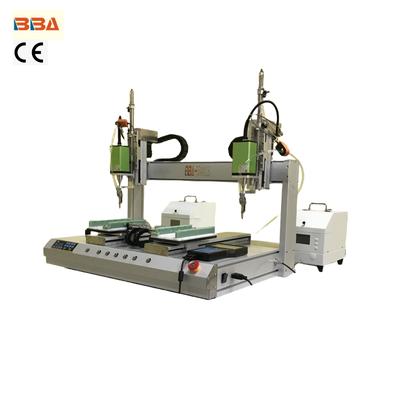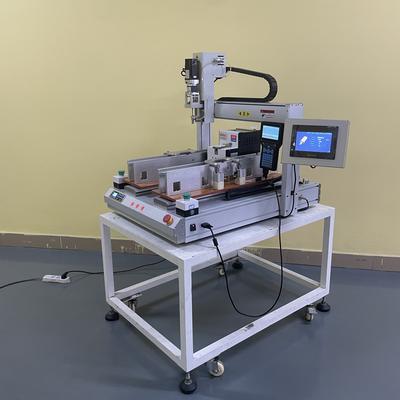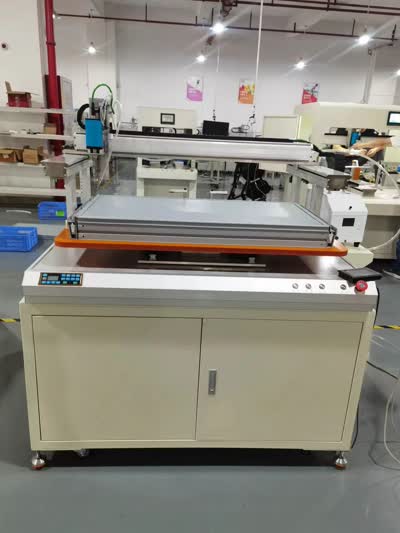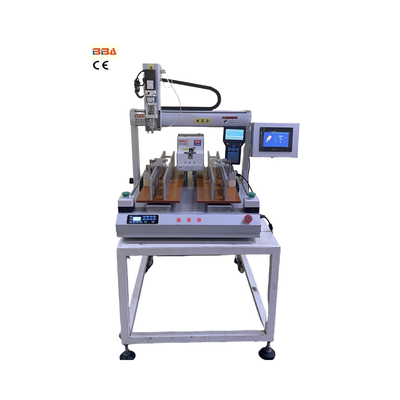Guide to Choosing Screw Tightening Machine Suppliers | Key Factors

| Product Name | Applicable industries |
| Inline Screw Locking System | Drone and UAV Manufacturing |
Evaluating Suppliers for Screw Tightening Machines
Selecting the right supplier for screw tightening machines is a critical decision that directly impacts production efficiency, product quality, and long-term operational costs. In the highly competitive landscape of industrial automation, making an informed choice requires a thorough evaluation process that goes beyond the initial price tag. This article outlines the key factors to consider when assessing potential suppliers for this essential equipment.
Technical Capabilities and Machine Performance
The foremost consideration must be the technical prowess of the supplier and the performance of their machines. Evaluate the precision, torque accuracy, and repeatability of the equipment. High-quality screw tightening machines should offer consistent performance to ensure every joint meets stringent quality standards. Inquire about the technology integrated into the machines, such as servo-driven systems for superior control or advanced data logging capabilities for traceability and process monitoring. The ability of the machines to integrate seamlessly with your existing production line and higher-level Manufacturing Execution Systems (MES) is also a crucial factor for modern smart factories.
Reliability, Durability, and Support
Industrial equipment is a long-term investment. Therefore, the reliability and build quality of the machines are paramount. Assess the robustness of the design and the quality of components used. A reputable supplier should provide clear information about mean time between failures (MTBF) and offer comprehensive warranties. Furthermore, the evaluation must extend to the supplier’s support structure. Consider the availability of technical support, spare parts, and on-site service. A supplier with a global or responsive local support network can minimize costly downtime, ensuring your operations continue to run smoothly.
Total Cost of Ownership (TCO)
While the initial purchase price is important, it is only one part of the financial equation. A more accurate assessment is the Total Cost of Ownership. This includes factors such as energy consumption, maintenance requirements, the cost of spare parts, and the expected lifespan of the equipment. A machine with a slightly higher upfront cost but lower energy usage and minimal maintenance needs will often prove more economical over its operational life. Request detailed TCO calculations from potential suppliers to make a financially sound comparison.
Expertise and Customization
The ideal supplier acts as a partner, not just a vendor. Evaluate their industry experience and expertise in your specific sector, whether it's automotive, electronics, or medical devices. Do they understand the unique challenges of your applications? An experienced supplier will offer valuable insights and can provide customized solutions tailored to your precise needs, rather than offering a one-size-fits-all product. Their ability to provide tailored end-effectors, software configurations, and application-specific validation is a significant advantage.
Conclusion
Choosing a supplier for screw tightening machines is a strategic process that demands careful attention to detail. By rigorously evaluating technical performance, reliability, total cost of ownership, and supplier expertise, you can select a partner who provides not just a machine, but a solution that enhances your productivity, ensures quality, and delivers a strong return on investment for years to come. A meticulous approach to supplier selection is the first step toward achieving a robust and efficient automated assembly process.


